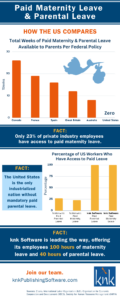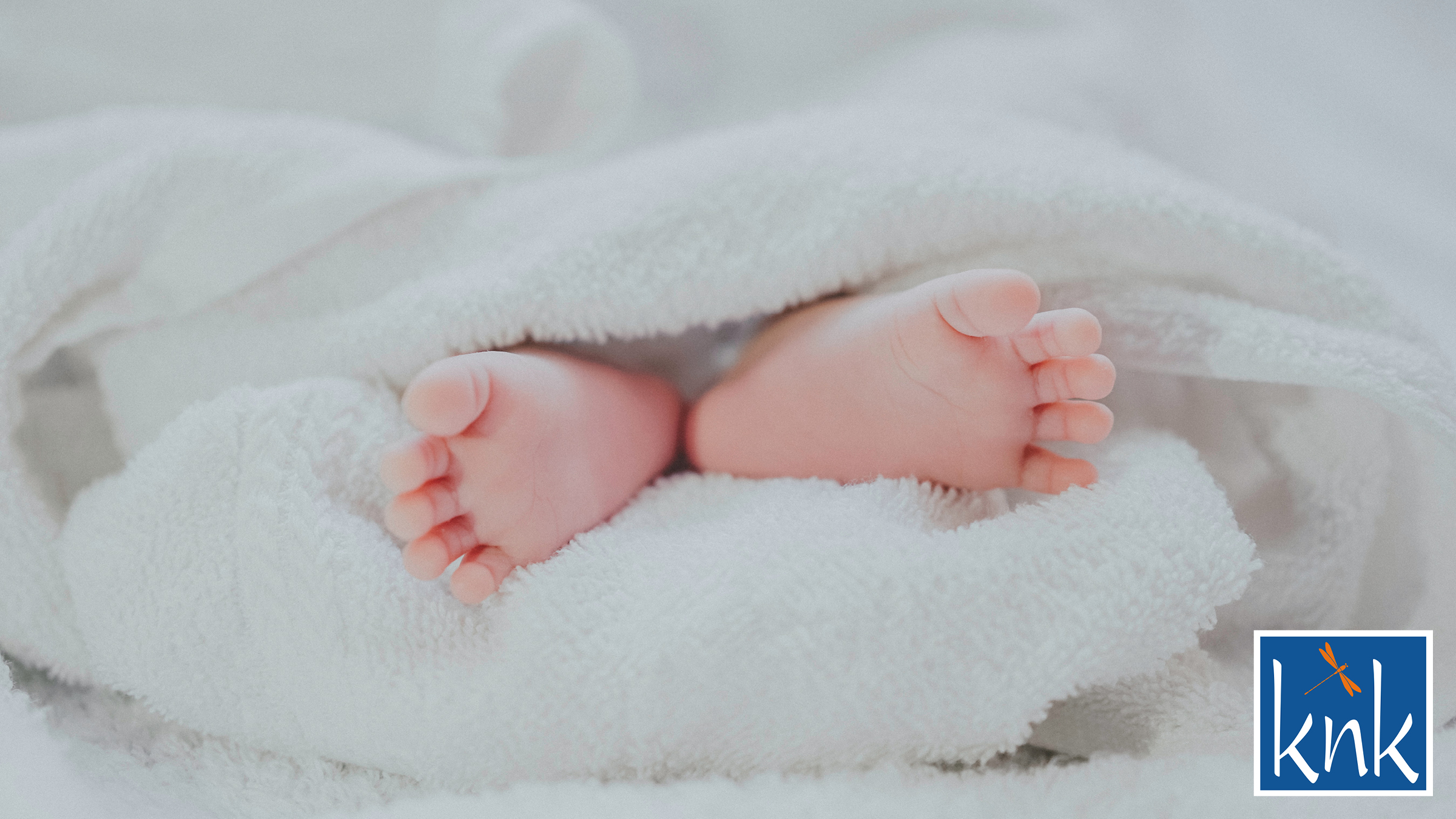US Parental Leave Lags Global Standards
knk Software Helps Bridge the Gap with New Policy
The first few months of a new baby’s life mark the start of a unique time when important bonds are built between the new child and the rest of the family. And while women experience the most obvious changes, experts now recognize it as a significant time for both parents. As a result, many countries and companies around the world now provide workers with paid parental leave. Noticeably absent from this list is the United States which has yet to implement paid family leave at the Federal level.
In the USA, minimum parental leave is regulated at the Federal level, with several states offering local improvements on top of that. The US Family and Medical Leave Act of 1993 (FMLA) requires 12 weeks of unpaid leave annually for mothers of newborn or newly adopted children if they work for a company with 50 or more employees. In a majority of US states, expectant and new fathers are entitled to a period of 12 weeks unpaid, job-secured paternity leave, the standard minimum level described in the FMLA regulation.
The USA is one of only 7 economically developed nations in the world with no guaranteed paid family leave for the birth of a child. The other six are Papua New Guinea, Micronesia, The Marshall Islands, Nauru, Palau, and Tonga, leaving the US clearly an outlier as the only wealthy nation.
Today, a majority of American workers still do not have access to paid maternity leave, and the typical maternity leave policy offers far less time-off compared to other countries. More than 120 countries require paid maternity leave by law. In 2023 in the US, the statistics are:
- Only 21% of workers have access to paid maternity leave

- 8 weeks is the average amount of paid maternity leave given by companies
- Only 40% of employers offer paid maternity leave in some form
At the state level, California, Connecticut, Massachusetts, New Jersey, New York, Rhode Island, Washington, and the District of Columbia have active paid parental leave policies. Other states like Colorado and Oregon are planning similar legislation.
While maternity leave is common, paternity leave lags a little in many countries. A 2014 International Labor Organization report showed that 184 countries offered parental leave, and of these, only 71 of the wealthiest nations provide paid paternity leave. Taking the lead are Japan, South Korea, and Portugal which grant the highest benefits to new fathers.
And closer to home, in May 2023, knk Software LP announced new parental leave policies for the birth or adoption of a child, which exceed those that are mandated or even typical in the US. The knk policy provides:
- 100 days of paid maternity leave to be used within the period starting one month before due date and ending one year after birth. This is available 12 months after the employee’s start date and only available every 365 days.
- 40 days of paternal leave to be used within the first year after birth or adoption. Availability conditions apply as with maternity leave described above.
So while the United States still lacks federal paid family leave policies, companies like knk Software are taking a step in the right direction by implementing generous parental leave benefits that exceed the norm.
Sebastian Mayeres, CEO of knk Software LP, says, “Being an international company, we were aware of the disparity in parental leave regulations between the US and other countries and wanted to step up. We strongly believe that the US government needs to step in and change its paid parental leave policies, but we also know this will take quite some time. We at knk know that our employees are our biggest asset, and we want to invest in the younger generations. Fortunately, we are able to do what we think is right and make younger people feel safe and secure in their work environment as well as help them to start a family by not letting them worry about work but rather focus on what matters most, which is the family. We also think that people will stay at companies where they feel secure in a strong internal culture, so this is a just a win-win for us all.”

Leave A Comment